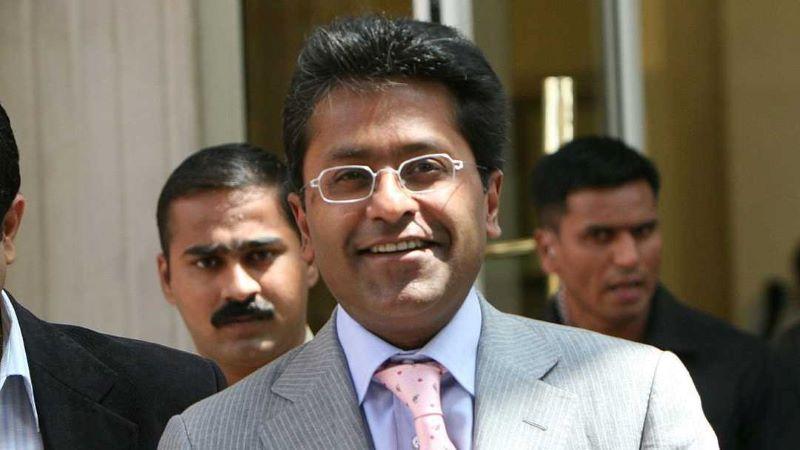
- devara
- 20 Mar 2025 03:30 AM
- #Sports & Games #IPL History #Lalit Modi #Indian Cricket #BCCI #Rajasthan Cricket Association
Like all iconic stories that blur the lines between myth and reality, the Indian Premier League (IPL) has a fascinating origin that began with an ambitious prediction on the front page of a Rajasthan newspaper. On December 4, 2003, Rajasthan residents woke up to a bold forecast in two major Hindi dailies: 'BJP 120-plus; bye-bye Ashok Gehlot.' By the evening of the same day, that prediction had come true. The Bharatiya Janata Party (BJP) secured 120 seats in the Rajasthan assembly elections, ending Ashok Gehlot's five-year term as Chief Minister. That victory set in motion a chain of events that would shape the future of cricket in India.
Lalit Modi’s Unexpected Entry into Cricket
Among the jubilant BJP leaders celebrating the election win at Jaipur's Ram Bagh Hotel was a bespectacled man in a sharp suit — Lalit Kumar Modi. While Modi was a well-known figure in Rajasthan's social circles, few knew that he had greater ambitions beyond politics. Modi had previously registered as a member of the Nagaur Cricket Association in western Rajasthan. At the time, Rajasthan cricket was controlled by the Rungta family, which operated the association from the backyard of one of their factories. Elections for the Rajasthan Cricket Association (RCA) were scheduled for 2005, and Modi, with the backing of BJP leader Vasundhara Raje, strategically positioned himself to challenge the Rungtas. A crucial amendment in RCA’s rules eliminated voting rights for nominated members, limiting voting power to district associations. In a dramatic election filled with political maneuvering and betrayals, Modi secured victory by a narrow margin of one vote. This unexpected win marked the beginning of Modi's remarkable cricketing journey.
The Birth of the IPL Idea
Modi had envisioned a franchise-based T20 cricket league as early as the late 1990s. Despite initial attempts to pitch the concept to the Board of Control for Cricket in India (BCCI), his idea was rejected. Determined to influence Indian cricket from within, Modi strategically aligned himself with BCCI leaders and eventually played a pivotal role in helping Sharad Pawar replace Jagmohan Dalmiya as BCCI President. Meanwhile, Subhash Chandra, head of the ZEE Group, launched the Indian Cricket League (ICL), luring retired cricketers and paying lucrative fees. With rumors circulating that active Indian players might join the ICL, the BCCI was forced to act. Modi saw this as the perfect opportunity to introduce his IPL concept. In September 2007, Modi unveiled the Indian Premier League (IPL) — a BCCI-backed T20 league modeled on city-based franchises owned by private investors. At the time, T20 cricket had barely made an impression in India. The national team had played only one T20 international before participating in the inaugural 2007 T20 World Cup. To everyone’s surprise, India emerged victorious in the tournament, led by young captain MS Dhoni. Memorable moments like Yuvraj Singh’s six sixes and Misbah-ul-Haq’s final scoop shot turned T20 cricket into a cultural phenomenon overnight, laying the groundwork for IPL’s success.
IPL Franchise Bidding and Launch
Securing investors for IPL franchises proved challenging. Modi and his team reportedly approached over 1,000 potential bidders, yet only ten showed up on bidding day. Each city franchise had a base price of $50 million, with only the top eight bidders qualifying for the inaugural season. Notably, Anil Ambani and a Deutsche Bank-led consortium submitted the lowest bids and failed to secure franchises. Cities like Kanpur, Ahmedabad, Cuttack, and Gwalior lost out to key metropolitan hubs — Mumbai, Chennai, Hyderabad, Bangalore, Delhi, Kolkata, and Mohali. As a gesture of gratitude for Rajasthan’s political support, Modi ensured Jaipur received a franchise too. The Rajasthan Royals, co-owned by Modi’s brother-in-law Suresh Chellaram, entered the league with a bid of $67 million, the lowest among the winning bids. Additionally, Modi’s close associates purchased stakes in other teams — the Kolkata Knight Riders and Kings XI Punjab — further consolidating his influence in the league.
IPL’s Meteoric Rise and Controversies
The IPL's inaugural season in 2008 was a massive success, blending cricket with entertainment in a way that captivated audiences worldwide. However, Modi's leadership of the IPL soon faced intense scrutiny. Allegations of corruption, financial irregularities, and power struggles marred his tenure. Despite these controversies, the IPL has grown into one of the richest and most-watched cricket leagues globally. Its unique blend of high-octane T20 cricket, celebrity team owners, and international star power has reshaped Indian sports. The IPL saga, like the election prediction that started it all, has been a story filled with ambition, drama, and unexpected twists. While Lalit Modi’s role in creating the IPL remains undeniable, the league’s turbulent journey continues to shape Indian cricket's future. The next chapter will delve into the fate of the men and women who shaped the IPL — a tale of success, scandal, and personal downfalls that no one could have foreseen, not even on the front page of a newspaper.












































